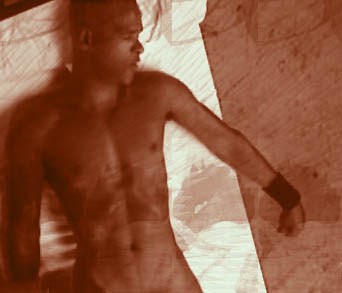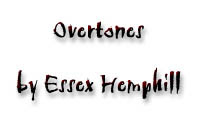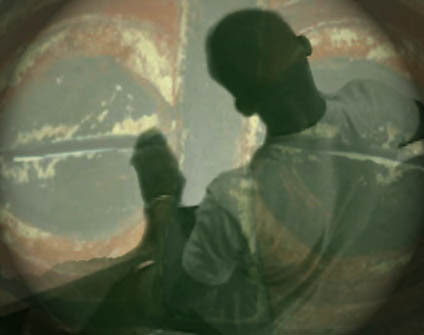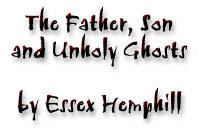Each person is entitled to make their own choices,
I choose to use Emaill to communicate to all memebers of my medical healthcare interface I choose to educate where society change is needed a 180 degree of change rational thinking... I am using TED TALKS, Ideas Worth Sharing, as it relates to inter-sharing meme mind to mind transfer to change. I have several very artistic poetic writings as it relates to the pathway direction of where future technology is heading. These all are wisdom wise in relation to TED TALKS and other alignment ideal sharing. These youtube video presentations are to be incorporated into the scope and directive of Client Centered Care of my mental health to enable my rights to bring forward this projects technology scope and focus on evolving morality changes in persuasive technology, the foundation of where my technology interface affects every single person in scope and focus within my life perspectives of enabling TRUTH. Access Rights in communcations means that my email must be able to be directed through and received, read, and understood and responded to if and/or when necessary. It is that simple. a .gov email addressing does not scare me off to do the right moral action thing(s) here. Don't scare me off tract by intimidation of directives to not email, not use Facebook, or not communicate in the manner most appropriate to my cause of concern, cause of community focus, community wellness, legal necessity, and this is not harassment. You must compy to Marlon Riggs' Essay posted at @Colorado.Edu called Introduction To Standards V5N1 http://meme.gruwup.net/%23MassiveMischievousMarvelOfMoldingMuck/QR-V5N1-Standards@Colorado.edu.jpghttp://www.colorado.edu/journals/standards/V5N1/marlonintro.html
INTRODUCTION TO STANDARDS:
V5N1
by Marlon Riggs
|
|
| |

mericans have
always been more and at the same time less than what we pretended.
With the quickening approach of the twenty-first century, greater
numbers of us are giving testament to this inescapable fact,
challenging the cozy myths by which America has been ritually
defined. Who are we? Who are we becoming? Who and what have we
been? In the next century, can we even continue to speak (could
we ever?) of a collective "we"? For the longest, of
course, these questions had simple answers.

America was white. America was male. America
was heterosexual. America was Christian. America, above all,
was a melting pot into which diverse cultural communities gleefully
descended to achieve the social and ideological transformation
necessary for inclusion within the American Dream. That many
of us--marginalized and oftentimes invisible Americans of African,
Asian, Latino and Native descent, as well as women and the working
poor--never quite melted and metamorphosized according to this
traditional prescription for social progress, hardly mattered.
The great distance between the Dream and our actual lives was
not due to any fault in the Dream: the defect was in us. The
Dream thus survived intact, its seductive power sustained by
America's stubborn refusal to look too closely at the hidden
but terrible costs of "the good life" and at who actually
could--much less wanted to--afford it.
The sixties, of course, spotlighted the
complex oppressive regime of thought, politics and culture which
underlay the myth of America. For the first time in U.S. history,
the ideological fabric of white heterosexual patriarchy was exposed
for the life-constricting straightjacket it had always been.
Despite conservative attempts during subsequent years at repair,
the old social fabric has been steadily unraveling. Thus we have
arrived at this present moment, wherein a nation historically
averse to serious introspection now exhibits--in its politics
and popular media as well as its universities--an almost obsessive
reflexive preoccupation with our national identity.
To be expected, much of the current debate
is simply a re-hash of old opinion--an attempt to forcefully
rebut and undercut the de-centering politics of radical multiculturalism
(i.e., the kind of multiculturalism where difference actually
makes a differ-ence). Bring back the melting pot. Restore "traditional
values." Re-institute prayer in schools. Preserve the primacy
of Western civilization (the only one that matters anyway). And
not least, protect that critical bedrock of American greatness,
"the American family": such pronouncements reveal an
intense, even pathological desire to perpetuate a thoroughly
obsolete myth of America, and through this, a repressively orthodox
system of sociocultural entitlement.

hile the ideas of conservative/fundamentalist
America are hardly new, the typically strident pitch with which
such ideas are now being argued betrays how acutely anxious many
conservatives have come to feel, due to both real and anticipitated
loss of privilege and power. What is more, arch-conservative
rhetoric--as should be evident to anyone watching our presidential
elections for the past quarter century--has found a certain public
resonance. Difference, in the traditionalist outlook, has been
regressively equated with disunity; and disunity with profound
social chaos and collapse. Just as nature abhors a vacuum, so,
it seems, do many Americans with regard to the social-political
myths by which they organize and make sense of their lives. Even
a fundamentally flawed, repressive, inequitable social order
seems to many better than none at all. A clear imperative thus
confronts American progressives--that intricate (and frequently
fragile) web of communities comprised of people of color, feminists,
gays and lesbians, the poor and working class, as well as ethnic
whites who value ethnicity, indeed all who have been systematically
disenfrancised and dehumanized under the once ascendant "traditional
values" of pre-Civil Rights America.
It's no longer enough, if it ever was,
to critique interlocking systems of oppression without offering
affirming alternatives of how society should and can reconstitute
itself. As we move into the inevitably more demanding multilingual,
multicultural environment--both nationally and globally--of the
next century, our greatest task will be an inversion of the commonly
assumed equivalence between difference and disunity. We must
re-write this equation, demonstrating again and again that unity
does not require unanimity, that unity--that is, a sense of social
cohesion, of community--can and does derive from the expression,
comprehension, and active nurturing (and not merely tolerance
or fetishization) of difference.
This is the new standard of civilized life
that now demands our urgent labor, a new world order, if you
will, that subverts traditional conceptions of social order:
a standard which in effect subverts the meaning of the word "standard"
itself. For the new order must be comprised of multiple standards:
shifting, open-ended, dynamically transforming, so as to engender
ways of thinking and living that privilege no one set of cultural
differences over another but affirm virtue in all.

This perspective forms the key inspiration
and overarching theme in STANDARDS. Page after page eloquently
testifies to the commitment of a new generation of America's
best and brightest to shaping a radically redefined vision of
our future, where old repressive dualisms of race, class, sexuality,
gender and nationality no longer reign--a future in which not
merely some but all of us are free to explore and express our
richest humanity.
Marlon Riggs
Oakland, 1992
|
|
| |
|
|
| |
|
|
| |
MARLON T. RIGGS was a
producer, director, and writer, who graduated with honors from
Harvard in 1978, and received the MA from UC Berkeley, where
he later taught Documentary Film in the Graduate School of Journalism.
His films include Tongues Untied, the acclaimed account
of Black gay male life; and Ethnic Notions, for which
he was awarded the Emmy. Mr. Riggs' work has been published in
the anthology Brother to Brother, as well as in arts and
literary magazines, including High Performance, Black
American Literature Forum, and Art Journal. A media
activist, he testified before the U.S. Senate, and wrote extensively
on the issue of censorship. Mr. Riggs was also on the policy
committee of the national PBS, and served on various other panels,
including the National Endowment for the Arts. Marlon T. Riggs
died of AIDS-related complications in 1994. We remember him with
deepest respect and admiration.
Riggs' final
film, Black Is...Black Ain't, was shown across the
nation, to much acclaim.
More information on the press release at
this link.
|
|
| |
|
|
===== https://www.colorado.edu/journals/standards/V5N2/HEMPHILL/hemphill2.html
| |
|
|
| |
There
will always be nuisance.
or I could let myself be captured
by the magic flute of satyrs
who would gently lure me to entrapment
to drink my blood
for one more day of life.
If in my substance
it could be conveyed
how little I give a damn about tomorrow,
the length of my trousers,
the circumcision I didn't agree to,
the daily shave, the score, the mythology.
Would they be shocked to discover
contempt clinging to my cells like algae.
Nuisance: dying
to assuage insanity.
Religious fervour. Moral pandemonium.
The unexpected lurks near the hours
you thought private.
What will you accept
in exchange for your silence?
What life do you want
for one more day?
If it's a better
vision
let's die here, a soldier's death,
the death of tulips -- and spring.
If blood and flesh will win us
a new world that is not a token
or a statue covered in pigeon shit.
|
|
| |
|
|
| |
"Overtones" ©
1987, 1996, 2002 by Essex Hemphill
This piece appeared in the
first edition of the companion book Tongues Untied: Poems
by Dirg Aaab-Richards, Craig G. Harris, Essex Hemphill, Isaac
Jackson, Assotto Sainte (London: GMP, 1987). Reprinted here
by permission of the author; the Frances Goldin Literary Agency;
and the Hemphill family.
ALL RIGHTS RESERVED
|
|
| |
|
|
| |
Original Graphics
© 2002 by Emmanuela Copal
de León |
|
---- https://www.colorado.edu/journals/standards/V5N2/HEMPHILL/hemphill1a.html
| |
|
|
| |
i
We are not always
the bravest sons
our fathers dream.
Nor do they always
dream of us.
We don't always
recognize him
if we have never
seen his face.
We are suspicious
of strangers.
Question:
is he the one?
ii
I stand waist deep
in the decadence of forgetting.
The vain act of looking the other way.
Insisting there can be peace
and fecundity without confrontation.
The nagging question of blood hounds me.
How do I honor it?
iii
I don't understand
our choice of angers,
your domestic violence,
my flaring temper.
I wanted tenderness
to belong to us
more than food or money.
The ghost of my wants
is many things:
lover, guardian angel,
key to our secrets,
the dogs we let sleep.
The rhythm of silence
we do not disturb.
iv
I circle questions of blood.
I give a fierce fire dance.
The flames call me.
It is safe. I leap
unprepared to be brave. I surrender
more frightened of being alone.
I have to do this
to stay alive.
To be acknowledged.
Fire calls. I slither
to the flames
to become birth.
v
A black hole, gaseous,
blisters around its edge,
swallows our estranged years.
They will never return
except as frightening remembrances
when we are locked in closets
and cannot breathe or scream.
I want to be free, daddy,
of the black hole between us.
The typical black hole.
If we let it be
it will widen enough
to swallow us.
Won't it?
vi
In my loneliest gestures
learning to live
with less is less.
I forstalled my destiny.
I never wanted
to be your son.
You never
made the choice
to be my father.
What we have learned
from no text book:
is how to live without
one another.
How to evade the stainless truth.
Drug pain bleary-eyed.
Harmless.
Store our waste in tombs
beneath the heart,
knowing at any moment
it could leak out.
And do we expect to survive?
What are we prepared for?
Trenched off.
Communications down.
Angry in alien tongues.
We use extreme weapons
to ward off one another.
Some nights, our opposing reports
are heard as we dream.
Silence is the deadliest weapon.
We both use it.
Precisely. Often.
|
|
| |
|
|
| |
"The Father,
Son and Unholy Ghosts" © 1996, 2002 by Essex
Hemphill
This piece appeared in the
first edition of the companion book Tongues Untied: Poems
by Dirg Aaab-Richards, Craig G. Harris, Essex Hemphill, Isaac
Jackson, Assotto Sainte (London: GMP, 1987). Reprinted by
permission of the author; the Frances Goldin Literary Agency;
and the Hemphill family.
ALL RIGHTS RESERVED
|
|
| |
|
|
| |
Original Graphics ©
2002 by Emmanuela Copal de León |
|
[Quoted text hidden] |
|

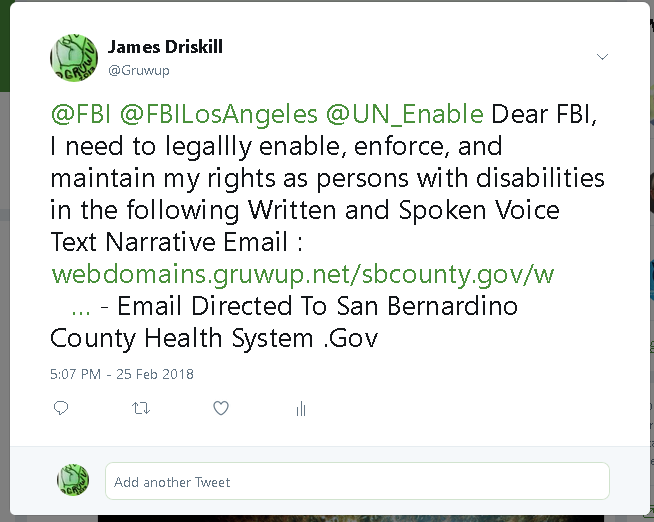
 ] NARRATIVE.
] NARRATIVE. ] ?
] ?




